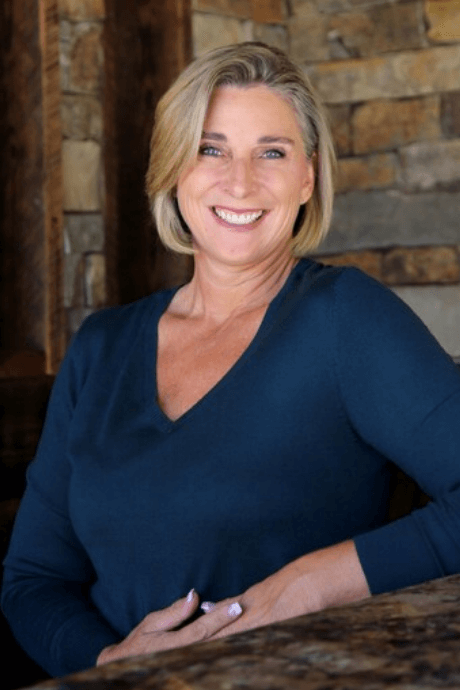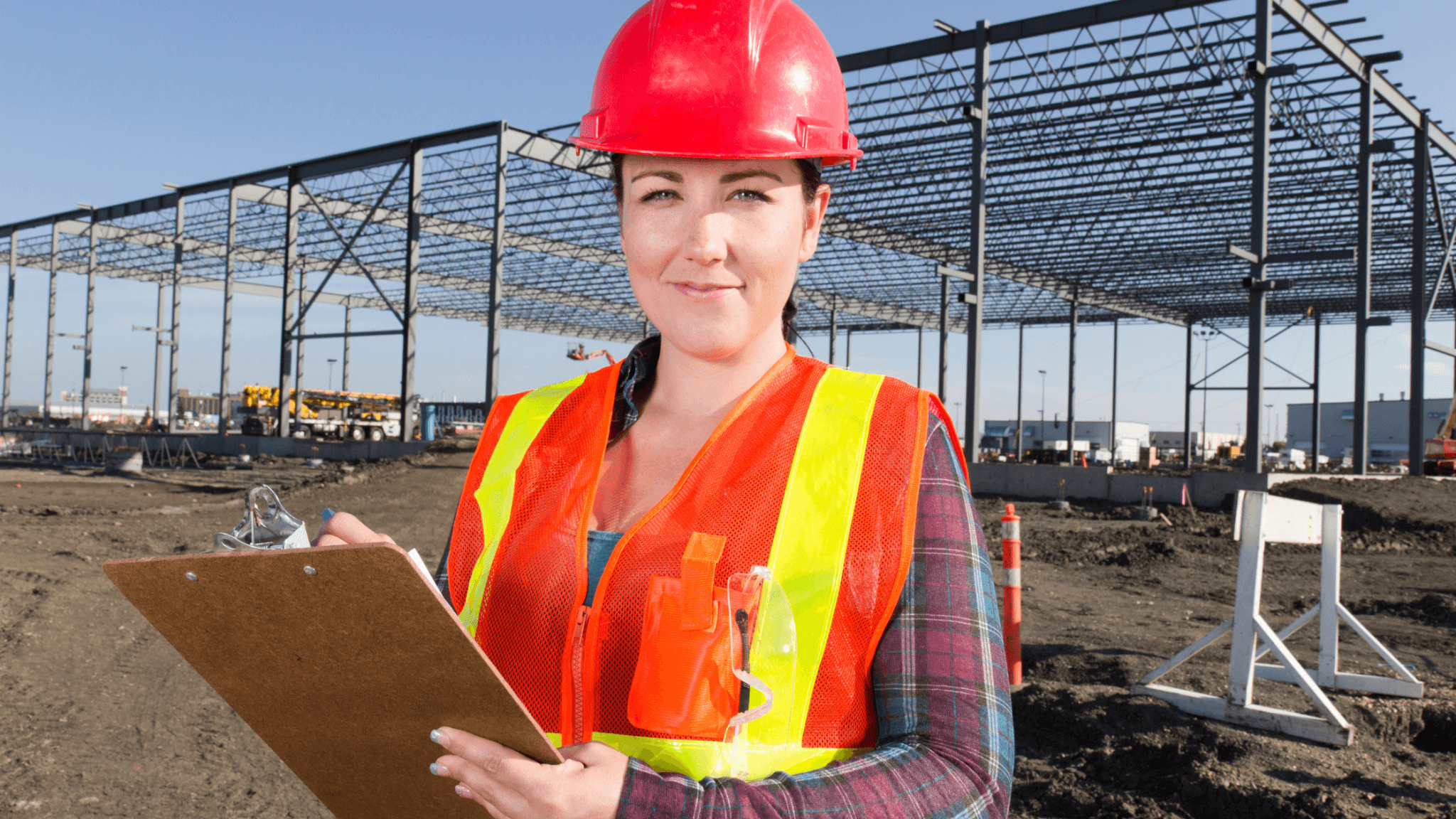As safety consultants, women continue to face a unique set of challenges, including harassment, a lack of mentorship, and acknowledgment for their contributions. Women require equal access to support and networking opportunities not only to help promote gender diversity and equity in their field but also to improve the industry as a whole. By addressing these issues, women are filling the gaps and driving progress and innovation in safety consulting to create a more supportive and equitable industry.
Construction sites can be dangerous, and safety consultants are crucial in identifying potential hazards and implementing measures to prevent accidents or injuries.
For a long time, safety positions in construction have been dominated by men. But while the scale hasn’t fully tipped in their favor, we’re seeing more women step into these roles. Women bring diverse perspectives and skills to the table that can lead to innovative safety solutions, better communication, and a stronger overall safety culture.
The growing presence of women in construction safety
The construction industry is seeing a positive shift, with more women stepping into safety roles. This shift isn’t just about breaking traditional gender barriers—it marks an improvement to work site safety culture.
“I think those in management and leadership positions are recognizing that they don’t have enough ‘manpower’ or workforce to be able to do what needs to get done,” says Cory Fisk, founder of Construction Management Online. “They are being forced to open their minds to not only women employees but to younger generations who work very differently than current generations.”
Fisk’s journey into construction began accidentally. Initially, she aimed for a career in animal science but shifted to construction to pay off student loans. “I recognized that my college loans were more than I would be making in an annual salary in agriculture, and it pushed me back into the construction industry.” Fisk progressed from a laborer to a field engineer, then eventually became a college professor and started her own construction consultancy focusing on management roles.
Accidental or not, recent reports indicate that organizations recognize the value women bring to safety roles and actively recruit and support them. Between 2016 and 2021, the number of women in the U.S. construction industry increased by 32%, according to the Institute for Women’s Policy Research.
Challenges faced by women safety consultants in construction
Despite the evident uptick in hiring and retention practices for women in construction, specifically in safety roles, the industry still has a long way to go on the road to parity.
One big issue is the lack of mentors and role models. Mentorship is essential for career growth because it provides guidance, support, and networking opportunities. In that regard, Fisk considers herself lucky. “I had a mentor who was a construction manager who taught me how to read drawings and how to put change orders together and submittals,” she says.

“My greatest mentors were men, friends who took me under their wing and would take me to lunch and talk to me about stories, or just to be there when other men treated me harshly in a meeting or out on the job site, they thickened my skin and made me tougher.” However, many women struggle to find mentors, male or female, who can help them navigate their roles and advance their careers.
To that end, harassment and discrimination continue to be significant problems. Women frequently encounter harassment on construction sites, ranging from inappropriate comments to more severe forms of abuse. This can seriously affect their mental health and job performance, creating an extra barrier to their success.
“There was always sexual harassment. There were always notes left on my car after work from ‘Mister Anonymous,’” says Fisk. “There were times when I felt that I had to do things that were unsafe in order to be able to keep my job. If you resisted going down in the manhole or if you didn’t want to climb the ladders to the third story because they weren’t tied off … My hope is that that’s all changed. But I know that some of it still exists because it’s an old industry with people who have old mindsets, who don’t think to wake up until it’s too late for someone else.”
It’s astounding, then, that many construction companies don’t see the value of safety consultants. “Their bottom line is the dollar, their focus is on production. They see safety as a cost to the project instead of recognizing what it could save,” says Fisk.
“When you show your workers that you care about them, you’re investing in them, you are concentrating on making their life easier so that they can go back home to their families, there’s a different mindset and generation of energy that is going to help them want to produce for you. It’s going to make them want to be loyal to you. It’s going to increase all of the values that most companies say that they want for their employees.”
Gaining that respect from colleagues can be tough. Women often have to work twice as hard to earn and maintain respect, using various strategies to show their competence and authority. Of her past experience, Fisk says, “Besides the fact that I was a woman, I was also very young. Having them listen to me was very difficult, so I usually kept to myself and worked really, really hard.”
Women in construction safety roles are often stereotyped as less capable or knowledgeable, leading to their opinions and expertise being undervalued or dismissed. Moreover, there’s still a long-held assumption that a woman’s place is at home.
“It’s different today. Back then, it was important to be able to let it roll off your back,” Fisk says. “But now, there’s a different understanding of trying to educate men of how to work with women as co-workers instead of looking at them as mothers, wives, daughters. You know, we’re now equals and partners in our careers. Back then, it was more about survival.”
It can be disheartening for women in construction to feel that their voices are stifled or that their career paths can be blocked, even with sterling credentials. “I was reading a post from a woman bragging about having two civil engineer degrees. She was upset because they were dismissing her,” Fisk says. “Men aren’t looking at your resume. They don’t know that I have a Class A contractor’s license. They don’t know that I have a master’s in curriculum and instruction. They don’t care. Most of them got where they are without a degree, so their appreciation and value of that work is not acknowledged.”
Networking and support for women in construction safety
The good news is that the tides are slowly turning. Modern work practices and current HR policies have seeped into the world of construction, and what many have been able to get away with in the past no longer holds sway.
Improved support and networking opportunities can help women navigate the challenges of their profession while also providing opportunities for women in career advancement, mentorship, and professional growth.
The National Safety Council (NSC) is a major player in supporting women in safety roles. It offers all kinds of programs to help women grow their careers and tackle the challenges they face in the construction industry. These include mentorship programs, networking events, training, and educational resources for professional development tailored specifically for women in these roles.
Networking and support groups are equally vital for career development. They offer women a chance to share their experiences, learn from each other, and learn best practices. These groups also provide emotional and professional support, helping women navigate the hurdles they encounter in their jobs.
Below, we’ve listed some of the organizations that provide resources and programs to help women enhance their skills, stay informed about industry changes, and advance their careers:
- The National Association of Women in Construction (NAWIC): Provides educational programs, networking opportunities, and advocacy for women in the construction industry.
- Women in Safety Excellence (WISE): A community within the American Society of Safety Professionals (ASSP) that focuses on advancing women in the safety profession through mentorship and professional development.
- Women Construction Owners & Executives (WCOE): Supports women who own or lead construction companies through advocacy, education, and networking.
- Professional Women in Construction (PWC): A nonprofit organization that supports women and promotes diversity in the architecture, engineering, and construction industries.
Increasing the number of women in safety consultancy roles isn’t just about representation; hiring women often leads the industry towards a safer and more innovative future. And that’s something we should all get behind.


